IIn a remote corner north of the Arctic Circle, Memettursun Omer gazes out the window at the swirling snowstorm outside as the nasal voice of a Chinese official rings out from the mobile phone he holds in his hand.
A Uyghur Muslim from China’s remote Xinjiang region, Omer traveled as far as he could to evade Chinese authorities – to the small Norwegian town of Kirkenes.
So far, he says, they have always managed to find him. In dozens of messages left on his phone since he left China, the voices he says are those of Chinese agents flattering, cajoling and threatening. “We didn’t send you there so you could behave like this,” an official said in one recording. “You forget who you are.”
Four years earlier, Omer says he was sent by the same handlers to Europe on a secret mission: to infiltrate and spy on Uyghur groups that were drawing attention to human rights abuses perpetrated against millions of members of their community and other ethnic minorities.
Months before his departure, Omer had been detained by the Chinese state after returning from work abroad. He says he was tortured, beaten and interrogated about his connections in Europe before being subjected to months of grooming, brainwashing and threats. Eventually, his masters decided that he had become a loyal Chinese citizen, willing to obey state orders.
Before leaving the area, Omer says he was forced to sign a statement admitting he was a terrorist. “Wherever you are going, we can use this to show you are a criminal and get you back to China,” he says his handlers told him at the airport.
“If you ever start to forget what we told you, just look at the moon. Wherever you can see the moon, we can find you.
Yet Omer had no intention of becoming a Chinese spy. He went to Istanbul, where he tried to start a new life, getting married and reuniting with his father. All the while, he says he was continually threatened and harassed by his former Chinese dog handlers.
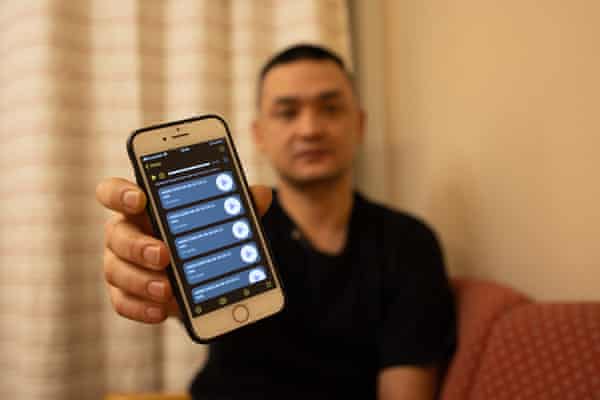
“We are going to kill you,” he said, an agent told his family in a WhatsApp call, shortly after arriving in Turkey. “You don’t need us to tell you how we do things. We will deal with this problem according to our own rules.
Last year, Omer felt it was too dangerous to stay in Istanbul and left Turkey. He ended up in an asylum camp in this small Norwegian town in the Arctic Circle, near the Russian border.
When Omer arrived in early January, he spent days wandering the frozen border town in the blue twilight of the polar winter. looking at the desolate desert.
“I have lived all my life surrounded by people. But here there is hardly anyone. Everything is so different,” he says. “I never imagined that I would end up so far north.”
But Kirkenes’ isolation was part of its appeal. Allegations of human rights abuses faced by China’s Uighur population have been widely documented and condemned internationally, with an estimated 1 million Uighurs and other Muslim minorities believed to be locked up in a network of detention camps. internment.
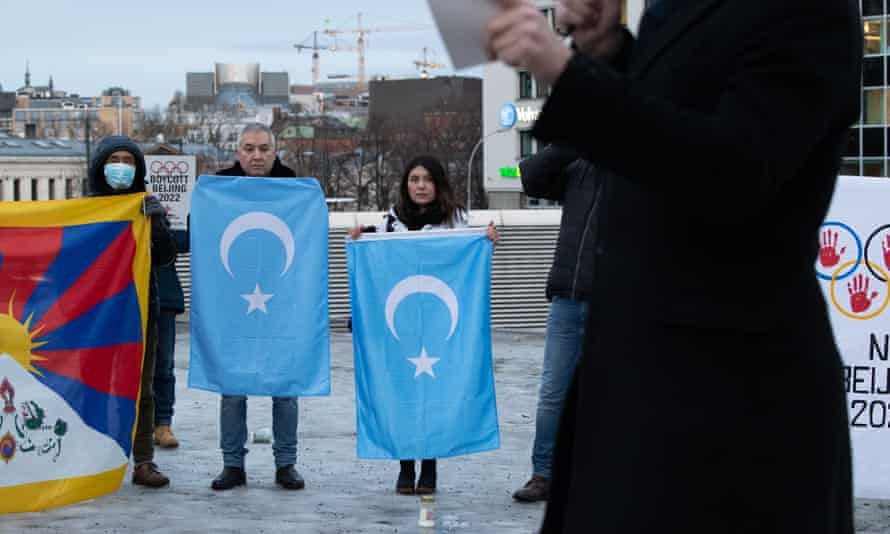
For those who manage to flee, Norway, with its egalitarian laws and exemplary democracy, appears to be the safest place on earth. There are approximately 2,500 Uyghur asylum seekers in Norway as asylum seekers. Yet even here, Uyghurs say they are being hunted.
According to Oslo-based Uyghur activists, “nearly 100%” of Uyghurs in Norway are monitored, threatened and censored by the Chinese state. This, they say, creates a collective sense of psychological pressure; a constant feeling of being watched.
Surveillance has “a psychological way of crushing your mind,” says Omer. “I felt like I was still in prison. I was scared and paranoid every day.
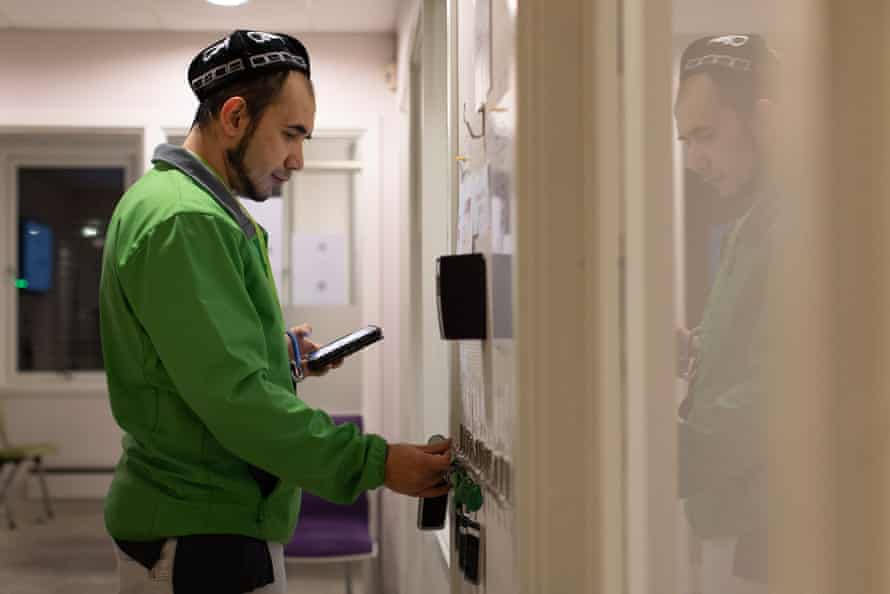
Merdan, a 34-year-old Uyghur refugee who says he fled Xinjiang in 2010 after being tortured in Chinese prisons, changed his name to the Norwegian-sounding “Martin Gunnar” upon arriving in the country, in a bid to avoid to be detected by the Chinese state.
It did not work. Chinese officials called him while he was living in an asylum camp in southern Norway and told him that if he told anyone about his experiences in prison it would be dangerous for her family.
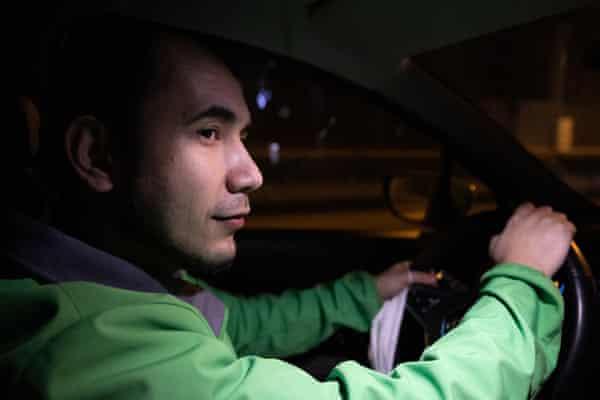
Yet Merdan refused to be intimidated. He has become an activist, filming YouTube videos about the Uyghur human rights crisis from his home and driving around town in an Audi with an unmistakable personalized license plate that says “UYGHUR”.
“When I first got the plaque, I walked past the Chinese Embassy five or six times. Because I’m not a terrorist, I’m not doing anything wrong,” he laughs.
Then, in 2018, he received a video call. Her father was sobbing while filming her mother, whose knees were bandaged.
“If you don’t stop what you are doing, maybe they will come and hurt him even more,” Merdan’s father said.
Merdan says he was called again in 2019 and 2020 by Chinese security agents. “They threatened me, suggesting ‘maybe I’ll have a car accident’ or ‘thieves might break into my house while I was at night’,” he says.
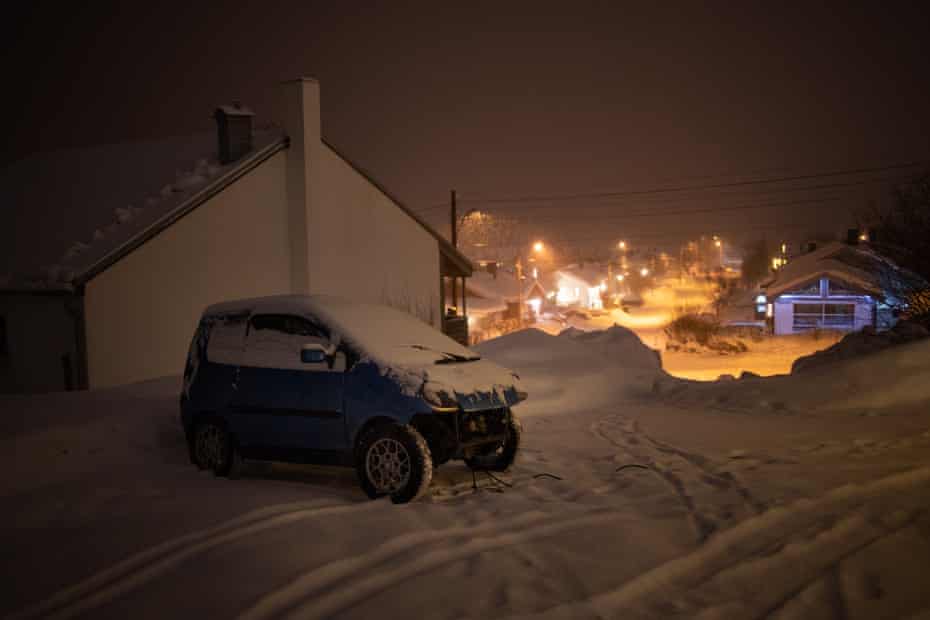
Merdan claims the officer offered him money, indicating that in return he would spy on other Uyghurs. Mercan refused. He has now installed several surveillance cameras around his house. “Nobody can trust anybody,” he says.
After Muetter Iliqud began writing anonymous articles about the persecution of Uyghurs for a Norwegian website, Chinese police came to his grandmother’s home. “I have no idea how they figured it out,” Iliqud says.
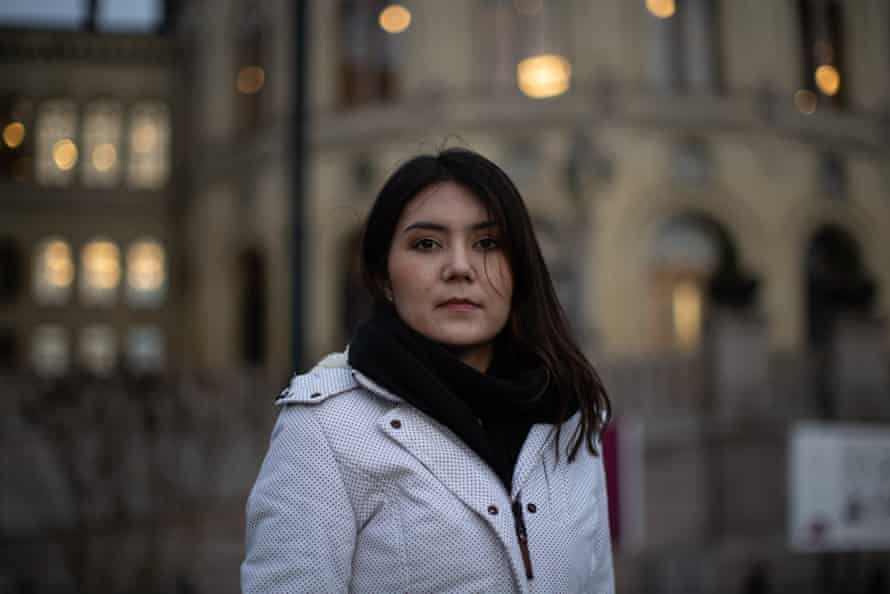
Instead of being silenced, Iliqud, who arrived in Kirkenes aged 13 in 2011, stopped using a pseudonym and started publishing under her own name. “I realized there was no sense in staying anonymous because they might find out anyway,” she says.
Harassment of Uyghur asylum seekers in Norway follows a familiar pattern of how other authoritarian states try to “eliminate” perceived threats, says Martin Bernsen, adviser to the Norwegian Police Security Service.
“China, Iran and other authoritarian states are using their intelligence services to identify and spy on dissidents and refugees in Norway, and will continue to do so in 2022,” he said.
The Chinese Embassy in Oslo has denied allegations of persecution by Chinese officials.
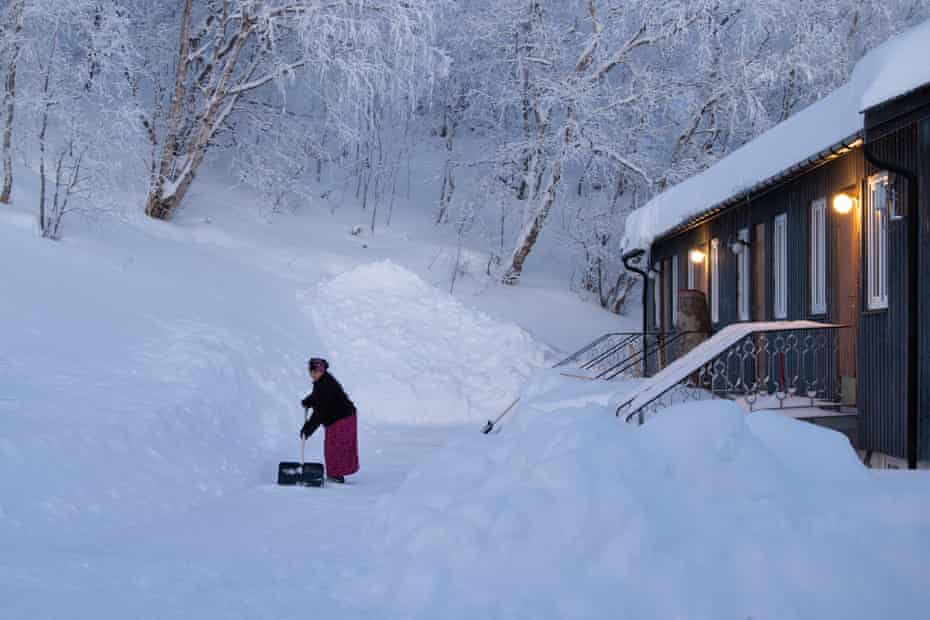
“The Chinese government and the Chinese Embassy in Norway have never taken such an action,” an embassy spokesperson said in a statement, adding that it had issued several warnings about telecom fraud in the country. name of the Chinese embassy and reported them to the Norwegian police. .
“What you mentioned are completely unfounded rumors and lies fabricated by anti-China forces. There is so far no evidence to support these charges,” he said. “Faced with indisputable facts, a lie repeated a thousand times will remain a lie. »
At least for Omer, his fear of threats from Chinese agents is beginning to fade. Here in the Arctic, where the Northern Lights twinkle overhead and every sound is muffled by snow, he says he feels safer than he has in years.
“I sleep better here,” he says. “I almost feel like I’ve reached the end of the world.”
A longer version of this article also appears at History of Coda.
Sign up for a different perspective with our Global Dispatch newsletter – a roundup of our best stories from around the world, recommended reading and our team’s thoughts on key development and human rights issues, delivered in your inbox every two weeks:
Sign up for Global Dispatch – please check your spam folder for the confirmation email

